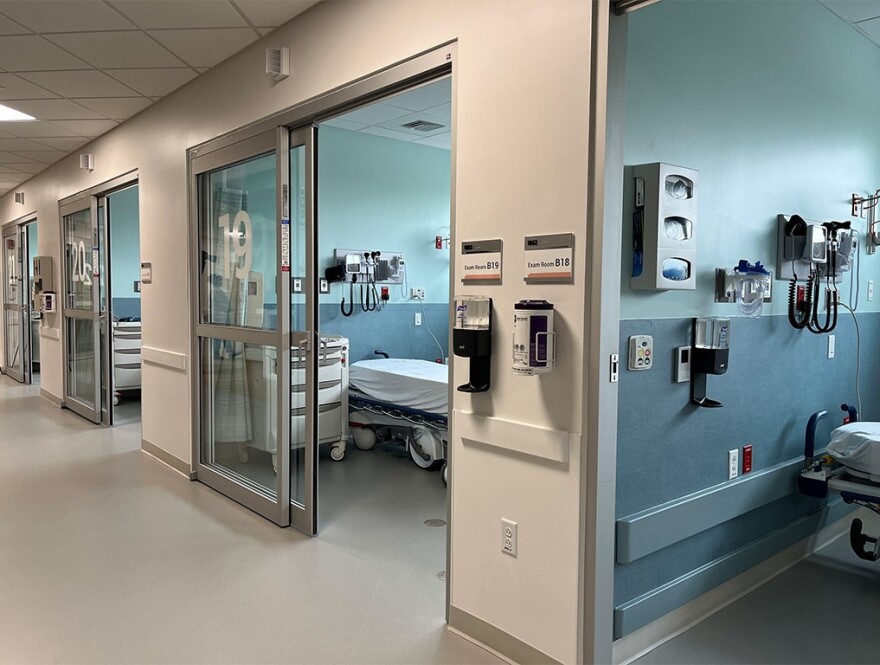This story was originally produced by the New Hampshire Bulletin, an independent local newsroom that allows NHPR and other outlets to republish its reporting.
Patients who are medically cleared to be discharged from a hospital continue to stay much longer than they need to largely because they cannot get the ongoing specialized care they require, according to a new report from the New Hampshire Hospital Association.
That care was most often out of reach because patients didn’t have adequate insurance. Two other primary drivers were the absence of a family member or guardian to help a patient manage their health needs after discharge and staffing restraints at post-acute facilities.
The report, based on data from a single day in the first week of March, showed that 129 patients who could have been discharged remained at New Hampshire hospitals for 10,140 days. That’s up significantly from September, when a similar snapshot of a single day showed 130 patients had spent an additional 8,451 days in hospitals.
“The delays not only affect the patients in the hospital, but also those who require inpatient beds and must wait in emergency departments for a bed to become available,” said New Hampshire Hospital Association President Steve Ahnen in a statement. In March, 38 were in emergency rooms. “The obstacles to discharge present substantial challenges for hospitals as well, straining resources including beds, staff, and medical supplies. Additionally, there are financial ramifications, as hospitals bear the cost when patients no longer have a medical need to stay in a hospital bed.”
Some of the main barriers for discharge changed between the September and March reports.
Far fewer people remained hospitalized in March due to homelessness, for example. And while fewer stayed because they didn’t have someone to help care for them after discharge, the consequences were significant. Five patients were unnecessarily hospitalized in March for more than 100 days because family and caregivers were unable or unwilling to care for them. Three patients occupied a bed they did not need for more than 200 days, according to the March report.
Slightly more patients remained in a hospital in March than in September because they could not get the bariatric care or behavioral health care they needed. More people were waiting for Medicaid determination but that resulted in slightly fewer unnecessary hospital stays, 43 days in March versus 54 in September, the report said.
Sixty-six patients were waiting for a long-term care admission followed by 39 waiting for a bed in a skilled nursing facility. Fewer needed home health care or an inpatient rehab facility.
New Hampshire Bulletin is part of States Newsroom, a nonprofit news network supported by grants and a coalition of donors as a 501c(3) public charity. New Hampshire Bulletin maintains editorial independence. Contact Editor Dana Wormald for questions: info@newhampshirebulletin.com. Follow New Hampshire Bulletin on Facebook and Twitter.


